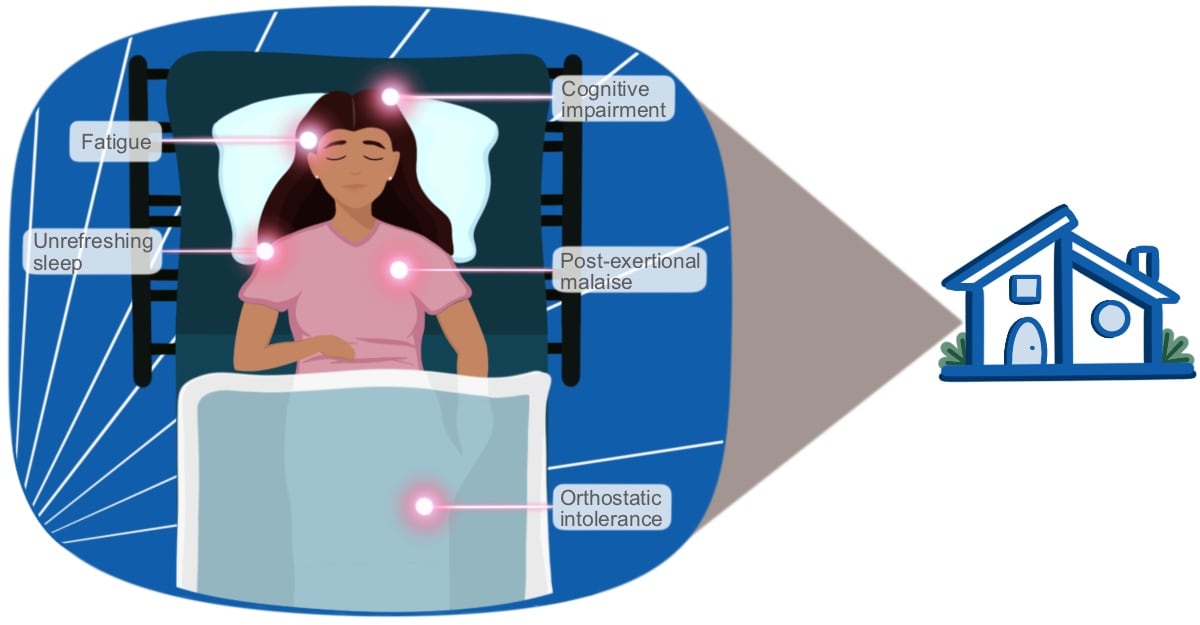Key points
- Some patients with Myalgic Encephalomyelitis/Chronic Fatigue Syndrome have very severe illness.
- These patients may need to stay home or in bed for weeks or more at a time, due to their illness.
- It's estimated up to 1 in 4 ME/CFS patients is home- or bed-bound at some time in their illness.

Care and treatment considerations
Very severely affected ME/CFS patients experience profound weakness, almost constant pain and severe limitations to physical and mental activity. They may also have hypersensitivity to light, touch, sound, smell, medications and certain foods.

These patients often cannot make office visits due to the severity of their symptoms. They require in-home assistance and management plans specifically adjusted to their needs by a coordinated care team of providers. Caregivers, who provide management and the majority of care for patients, often have substantial stress and may need additional support.
The subset of severely ill ME/CFS patients who are completely bedbound requires special attention. They need in-home visits and phone/online check-ups, and a modified approach to activity management.
Some accommodations for those severely ill from ME/CFS include recumbent wheelchairs, portable cook surfaces, shower chairs and bedpans. These tools allow them to consider sitting when cooking or showering. They can use a bed-side commode instead of walking to the restroom. And they can take frequent breaks during activity to save their energy.
A realistic goal with severely ill patients is focusing on reducing stiffness and maintaining joint range of motion. This can be accomplished by passive range-of-motion exercises and gentle stretching (if touch can be tolerated). Hand stretches and picking up and grasping small objects may be all that can be managed by some patients.
Treatment plan for severely ill patients
The treatment plan for severely affected patients usually includes:
- Creating a very quiet, darkened environment.
- Modifying or limiting physical and mental activity.
- Developing a medication/supplement plan that is kept to a minimum.
- Assessing the risks and benefits of each medication or supplement.
- Assessing potential risks of adverse drug interactions.
If possible, referring patients for physical therapy and other home health services may be useful.
Providing or referring to counseling can help severely affected patients adjust expectations for their lives. It can also help them deal with the anger, frustration, and despair that can accompany any debilitating illness, including ME/CFS.
Help with regular repositioning may be needed to prevent pressure sores in patients are unable to turn over in bed. Movement can help maintain range of motion, prevent contractures, and decrease stiffness. Osteoporosis risk can also be a long-term concern.
For these and other clinical reasons, it should be noted that complete bed rest carries a risk to patients. While sometimes necessary, it should be reserved for patients with the most severe symptoms.
